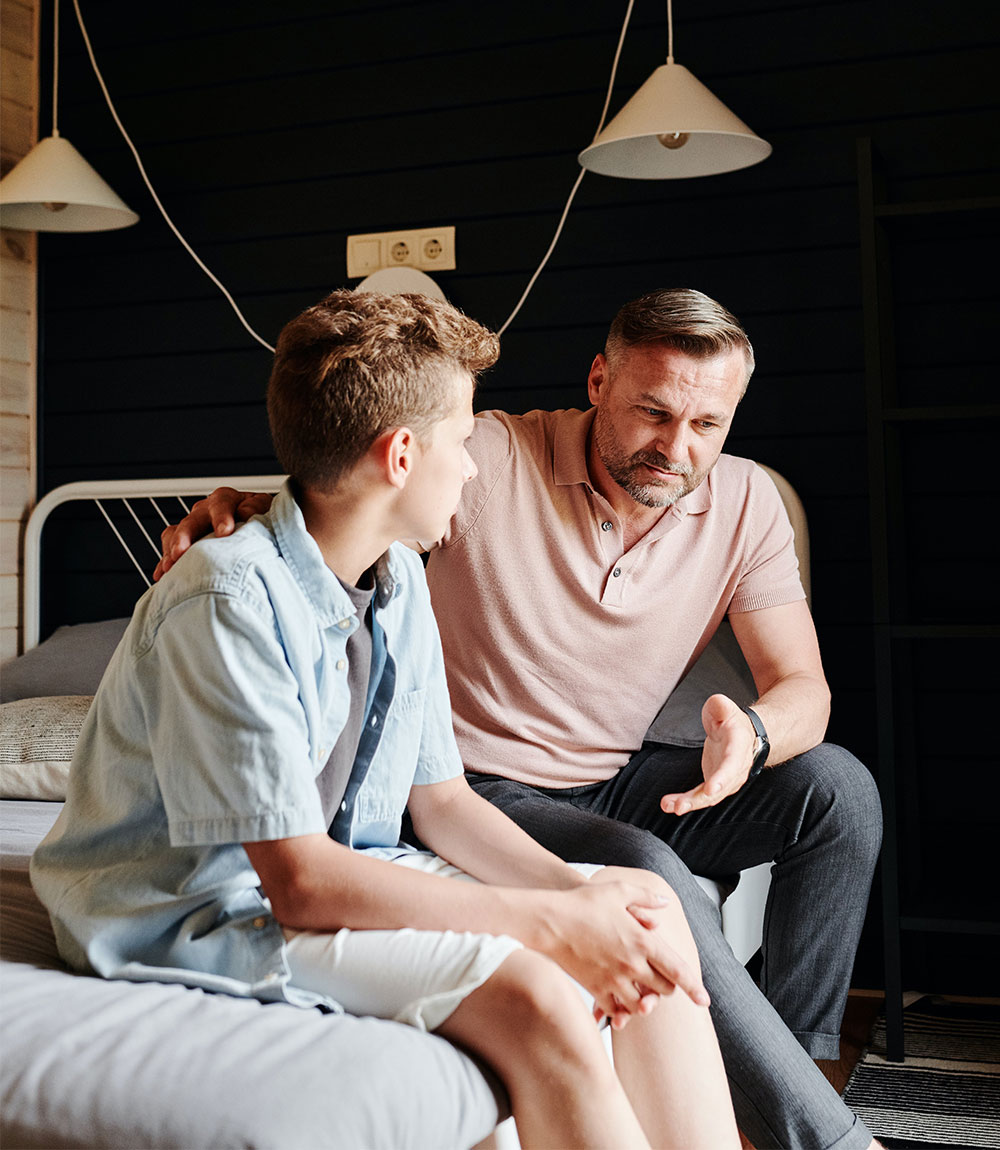You’re about to meet a married couple whose love struggled as they encountered what renowned researcher John Gottman calls the distance and isolation cascade.
Thankfully, their story demonstrates that even the most challenging relationships can find renewed strength, deeper connection, and lasting happiness with the right support.
The Distance And Isolation Cascade
Meet Ken and Karen. As with all couples deeply in love, their hearts were filled with the promise of a bright future together when they first married. Yet, over the years, their marriage faced turbulent waters—something every couple encounters.
As the demands of marriage increased, Ken and Karen’s relational dynamics started to deteriorate, generating patterns that renowned researcher John Gottman described as the distance and isolation cascade.
Gottman warns that this corrosive pattern can creep into the most loving relationships. Thankfully, since this pattern is predictable, it’s also preventable—especially when you have a guide with a clear plan to show you the way out.
The Path Out Of The Distance And Isolation Cascade
As Ken and Karen’s therapist, I was honored to help this brave couple overcome crushing loneliness and find their way back to a secure and lasting bond. It’s what I’ve been doing for over 22 years!
With separation and divorce looming, Ken and Karen discovered the strength and know-how to become open, attuned, and responsive to each other again. In the end, they allowed me to show them the path to re-establishing emotional safety and connection. Much to their surprise, as our time together ended, they renewed their marital vows during their summer vacation!
Here’s how it all started.
Ken and Karen’s Story: A Rocky Start
Within minutes of our initial meeting, I learned Ken and Karen were stressed parents at their wit’s end. As our conversation unfolded, I was not surprised to identify one of the first indicators of the distance and isolation cascade when Karen reported, “Life in our living room got busy, and somehow we just grew apart. Nowadays, it feels like we’re roommates.”
Minutes later, Karen turned to Ken angrily, saying, “You always criticize my spending habits! Can’t you see I’m trying to save for our future?” Ken retorted, “But, you never listen to my financial concerns, Karen! Who are you kidding? You don’t care about financial stability or our family’s future!”
This heated exchange overwhelmed them as criticism and defensiveness consumed the conversation. Ken and Karen’s exchanges highlighted one of the key elements embedded in Gottman’s first stage of the distance and isolation cascade.
Flooding
Emotional flooding refers to a state of overwhelming emotions that occurs during times of stress or marital conflicts. It happens when a person’s emotional response becomes so intense that they feel flooded with anger, fear, or sadness. This flood of emotions colors the couple’s perception and impairs the ability to reason, consider the views of others, or communicate effectively.
According to Gottman, flooding causes the four horsemen to start riding into the relationship. Gottman’s horsemen come in the form of…
Criticism: “You always forget our special occasions! You’re so thoughtless.”
Defensiveness: “I forgot because I was so busy today. Why didn’t you just do it?
Stonewalling: Ken withdraws, refusing to engage Karen, gives her the silent treatment.
Contempt: Eye-rolling and sarcastic comments like, “You’re so naive, it’s unbelievable.”
While in this phase, I learned that the constant barrage of negative emotions left Ken and Karen feeling like their marriage was built on top of a powder keg. When threatened, they accidentally and unintentionally filled each interaction with accusations, growing disappointment, and explosive outbursts. For example, Ken would tell Karen, “I can’t even talk to you about our issues anymore; it’s pointless!” In response, Karen would say, “You think I don’t know how bad things are? I give up… just like you have!”
The Distance And Isolation Cascade: Solving Problems In Isolation:
Ken and Karen’s collective belief that problems were insurmountable solidified their emotional separation. As a result, they stopped sharing their concerns and no longer discussed their opinions or feelings.
Next, their communication became limited to the mundane details of daily life, transforming them into mere roommates rather than the loving and caring partners they once were.
Early on, Karen revealed, “I used to confide in Ken about everything, but now it feels like I’m always the bad guy. So, I keep everything to myself.” In response, Ken nodded sadly, saying, “I thought she didn’t need me anymore. And like my busy wife, I’ve been dealing with problems by myself!”
Statements like these suggest that Ken and Karen’s inability to share their concerns only deepened their emotional detachment.
In the isolation stage, Ken and Karen became so reactive to each other’s opinions that they played it safe by avoiding meaningful conversations. As a result, trust in each other faded, and they no longer saw their partner as a reliable source of empathy, understanding, or acceptance. By the end of this phase, emotional safety in their relationship was fading. Meanwhile, their emotional distance continued to expand.
Parallel Lives:
I was not surprised to learn that Ken and Karen began living parallel lives as the cascade progressed. In other words, they deliberately adjusted their schedules to reduce time together, attending fewer social events and eating less.
Their once vibrant social life dwindled as they sought refuge in obligations that took them far from each other’s presence. For example, Ken reported, “I started taking on more work projects just to stay away from home!” In response, Karen declared, “I’ve started volunteering at the kids’ school—anything to avoid being around him!”
Ken and Karen’s discussion revealed a disturbing truth: their lives were becoming increasingly parallel, with little interaction beyond the necessities of daily living. More and more, this loving couple became mere roommates, going through the motions of married life.
Crushing loneliness:
The most heart-wrenching aspect of their journey was witnessing the crushing loneliness that engulfed them. Without successful attempts at repairing their relationship, Ken and Karen’s loneliness became unbearable. As a result, the decision to part ways or divorce entered their conversations.
And that’s when I was called upon to be their guide.
When I met with this brave couple, their profound loneliness was a testament to the deep emotional chasm that had developed between them. For example, Karen tearfully told Ken in a moment of vulnerability, “I miss us, how we used to be. It’s like I don’t matter anymore. I’m so lonely.” Ken, heavy with sorrow, responded, “I feel the same way, but I don’t know how to fix this… and that’s why I’m here.”
Until we met, their hope for a better future had vanished.
Conquer the Distance and Isolation Cascade:
Ken and Karen’s story is a touching reminder of the importance of addressing relationship issues early on and seeking help when needed. As their therapist, I was honored to be their guide with a plan.
As a result, this brave couple found the path to being open, attuned, and responsive to each other again. They reestablished emotional safety and connection. We used these key moments as touchpoints for several healing conversations. Thankfully, those moments empowered them to create a more secure and lasting bond for life!
I hope their story can serve as a reminder that nurturing love, understanding, and effective communication are crucial to keeping the flames of a relationship burning brightly.
Do you want help with your relationship?
Regardless of your challenges, I want you to feel empowered with the tools and skills to free yourself from the distance and isolation cascade and enjoy a more secure and lasting relationship!
I would love to be your guide if you are looking for a clear path to greater intimacy. Contact me today to learn how couples therapy can help.







